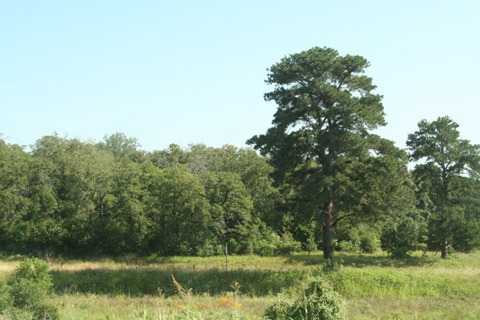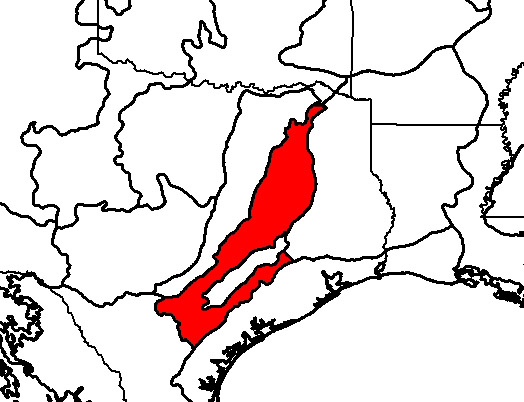
near Harwood, Texas
Bioimages home (click on an image to enlarge)
view
this page in its intended navigation context
East Central Texas forests (WWF
ecoregion NA0405)

near Harwood, Texas

Source of bioregions data:
Olson, D. M. and
E. Dinerstein. The Global 200: Priority ecoregions for global conservation. (PDF
file) Annals of the Missouri Botanical Garden 89:125-126.
Distinctiveness (1=highest,4=lowest): 3
(bioregionally outstanding)
This ecoregion is rich in butterflies and reptiles.*
Conservation Status (1=most endangered, 5=most
intact): 1 (critical)
Approximately 25% of the natural vegetation remains, but it is highly fragmented
and has been heavily altered. Conversion to agriculture and fire
suppression are significant threats.*
 Quercus
coccinea (scarlet oak)
Quercus
coccinea (scarlet oak) Quercus
s
Quercus
s Quercus
marilandica (blackjack oak)
Quercus
marilandica (blackjack oak) Carya glabra
(pignut hickory)
Carya glabra
(pignut hickory) Carya
tomentosa
(mockernut hickory)
Carya
tomentosa
(mockernut hickory) Ulmus
americana
Ulmus
americana Carya
illinoensis
(pecan)
Carya
illinoensis
(pecan)Some views from the ecoregion
Disturbed roadside forest, eastern Texas





(left) west of Columbus, Texas, (2nd from left) near Woelder, Texas, (center and
2nd from right) near Harwood, Texas, (right) near Kingsbury, Texas
hires
hires
hires
hires
hires
* Ricketts, T.H., E. Dinerstein, D.M. Olson, C.J. Loucks, et al. (1999) Terrestrial Ecoregions of North America: A Conservation Assessment. World Wildlife Fund - United States and Canada. Island Press, Washington, D.C. pp. 258-260.
Except as noted, images copyright 2002-2011 Steve Baskauf - Terms of use